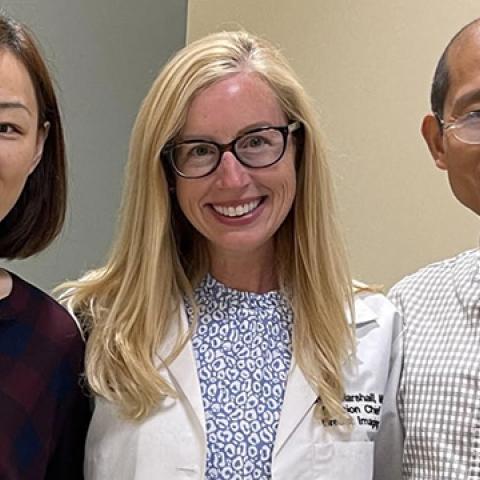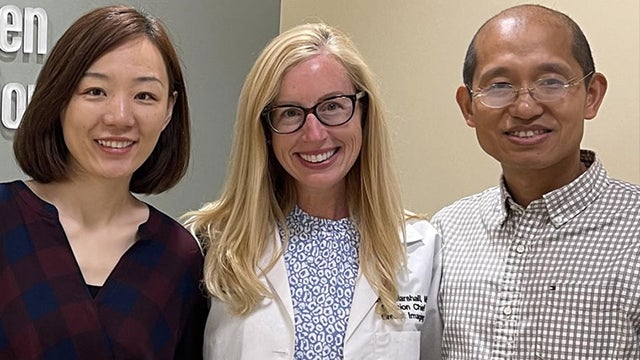Awarded five-year, $3.05 million grant from National Institutes of Health, National Cancer Institute
With a new five-year, $3.05 million grant from the National Institutes of Health and National Cancer Institute, researchers at Case Western Reserve University and University Hospitals (UH) will study whether a new magnetic resonance imaging exam can predict chemotherapy’s effectiveness for a woman with breast cancer based on a single round of treatment.
If magnetic resonance fingerprinting (MRF) can consistently produce such results, the researchers believe it could eliminate unnecessary treatment and allow doctors to focus on alternatives without wasting vital time.
“This study has great potential to bring real survival and quality-of-life benefits to our breast cancer patients,” said Yong Chen, an assistant professor of radiology at the Case Western Reserve School of Medicine.
Chen is leading the study with Holly Marshall, an associate professor at the School of Medicine and division chief of breast imaging at UH, and Dan Ma, an assistant professor of biomedical engineering at the School of Medicine.
MRF is a novel approach to magnetic resonance imaging that essentially allows multiple tissues in the body to be examined by taking a single, time-efficient image, or “fingerprint.”
Ma’s lab has been at the forefront of research to develop faster and more comprehensive MRF technology for various clinical applications, allowing early disease detection and assessment of treatment response.
“We are investigating if MRF can predict early response to neoadjuvant chemotherapy in breast-cancer patients,” Marshall said. “If it is discovered through MRF that treatment is not working after the first cycle of chemotherapy, other options could be offered to the patient without significant time lost. MRF has the potential to significantly improve patient care.”
Neoadjuvant chemotherapy is commonly used to reduce the tumor size before surgery for many breast-cancer patients. But because of different mutations in the same genes (known as phenotypic heterogeneity) in breast tumors, not all patients respond to conventional chemotherapy—nearly 80% show partial or no response. The standard method to assess a patient’s response to chemotherapy is a change in tumor size, which can require four to six months and multiple cycles of treatment.
Preliminary results of the researchers’ work suggest MRF methods can accurately assess therapeutic response seven to 10 days after the initial chemotherapeutic cycle, creating the opportunity for significantly improved patient care and flexibility aimed at a more personalized therapy for many women.
“The ultimate goal,” Chen said, “is to eliminate ineffective treatments in eligible subjects and instead tailor the treatment methods for optimum therapeutic outcomes for women with breast cancer.”
The team of study co-investigators includes: Amanda Amin, an associate professor in the School of Medicine’s Department of Surgery; Chris Flask, Mark Griswold and Donna Plecha, professors in the Department of Radiology; and Yilun Sun, an assistant professor in the Department of Population and Quantitative Health Sciences.
For more information, contact Patty Zamora at patty.zamora@case.edu



